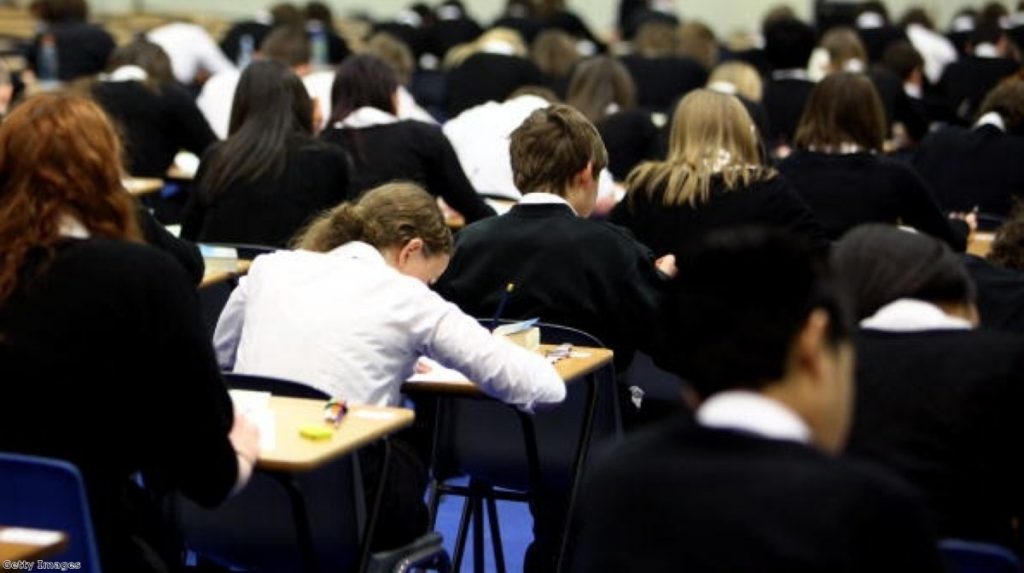Comment: Young people need sex education to protect them from abuse
By Caroline Lucas
Later today I will be presenting a bill to the House of Commons which aims to give PSHE (personal, social and health education) statutory status. With the current guidelines now 15 years old it’s time for us to take a step forward and give every child access to a curriculum which promotes resilience, physical and mental health and life skills. This is an important time to put pressure on ministers, as we await Nicky Morgan's delayed response to the education select committee's call for statutory PSHE.
There's no doubt that PSHE is needed. One in three girls say they experience 'groping' or unwanted sexual touching at school and a shocking 60% of 13-18 year olds have been asked to share a sexual image or video of themselves. When children are constantly bombarded with confusing messages about sex and relationships, and with young people in this country among the least satisfied with their lives and their bodies, it's clear that the time has come to end the postcode lottery which sees some children receiving excellent PSHE lessons whilst others receive barely any at all.
Ministers like to use the defense that 'SRE is already statutory'. But this is misleading. The current legal situation is confusing and young people are missing out on the enormous potential of PSHE. Only state secondary schools have to provide limited sex education. Academies and free schools do not have to teach SRE. The current law falls far short of ensuring all our children get the PSHE teaching they need and deserve.


The benefits of PSHE go beyond the immediate benefits of helping young people navigate sex and relationships in a healthy way. As well as being an essential part of safeguarding our children, PSHE has huge potential in relation to employability and academic attainment. PSHE teaches young people the skills they need to make good choices and to think things through. As The CBI's director for employment and skills, Neil Carberry puts it:
"Developing the right attitudes and attributes in people – such as resilience, respect, enthusiasm and creativity – is just as important as academic and technical skills."

PSHE isn't just necessary and very useful, it's also popular. In a poll of 1,000 parents of school-aged children, 78% said they wanted primary schools to teach children about the difference between safe and unwanted touching and how to speak up if someone treats them inappropriately. There is enormous popular support from students, teachers, parents and NGOs alike.
Some worry PSHE can expose children to sexualisation, but the exact opposite is true. A PSHE lesson for younger children won't expose them to anything graphic or upsetting. It would improve a child's grasp of what it means to give and receive consent generally. This can give them the solid building blocks they need as they encounter more complicated situations as they get older. Good quality PSHE will always be age appropriate – which is why teachers need the training statutory status would give. It is backed by 87% of parents, 88% of teachers and 85% of business leaders.
Fantastic examples of good PSHE provision exist already. Patcham High School, in my constituency, has seen PSHE transformed in the last seven years. They have a dedicated team, significant time on the timetable and tough subjects are sensitively discussed with pupils, helping them to become informed young adults. The head and teachers are passionate about the connection between happy, healthy students and academic achievement. When I visited and met young people and saw an example of some of their learning. I watched the young people learn to debate and discuss personal and difficult subjects, like mental health and emotional bullying, in an extremely thoughtful and intelligent way.
Schools like Patcham show the huge benefits of decent PSHE – but under current legislation free schools and academies are exempt from a requirement to teach the subject. It's this stark inequality – which sees some young people receiving the very best PSHE lessons while others are left exposed to harm – which my bill seeks to address. I hope members from across the House of Commons will join me in pushing for statutory status for PSHE.
Caroline Lucas is the Green MP for Brighton Pavilion.
The opinions in Politics.co.uk's Comment and Analysis section are those of the author and are no reflection of the views of the website or its owners.












